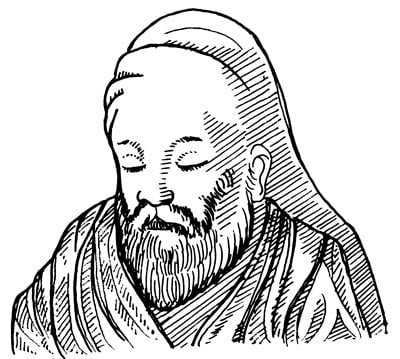
Euclid is one of the most influential and best read mathematician of all time. His prize work, Elements, was the textbook of elementary geometry and logic up to the early twentieth century. For his work in the field, he is known as the father of geometry and is considered one of the great Greek mathematicians.
Very little is known about the life of Euclid. Both the dates and places of his birth and death are unknown. It is believed that he was educated at Plato’s academy in Athens and stayed there until he was invited by Ptolemy I to teach at his newly founded university in Alexandria. There, Euclid founded the school of mathematics and remained there for the rest of his life. As a teacher, he was probably one of the mentors to Archimedes.
Personally, all accounts of Euclid describe him as a kind, fair, patient man who quickly helped and praised the works of others.
Euclid’s fame comes from his writings, especially his masterpiece Elements. This 13 volume work is a compilation of Greek mathematics and geometry. It is unknown how much if any of the work included in Elements is Euclid’s original work; many of the theorems found can be traced to previous thinkers including Euxodus, Thales, Hippocrates and Pythagoras. However, the format of Elements belongs to him alone.
Elements was translated into both Latin and Arabic and is the earliest similar work to survive, basically because it is far superior to anything previous. The first printed copy came out in 1482 and was the geometry textbook and logic primer by the 1700s. During this period Euclid was highly respected as a mathematician and Elements was considered one of the greatest mathematical works of all time.
Today, Euclid has lost much of the godlike status he once held. In his time, many of his peers attacked him for being too thorough and including self-evident proof, such as one side of a triangle cannot be longer than the sum of the other two sides. Today, most mathematicians attack Euclid for the exact opposite reason that he was not thorough enough. In Elements, there are missing areas which were forced to be filled in by following mathematicians. In addition, several errors and questionable ideas have been found. The most glaring one deals with his fifth postulate, also known as the parallel postulate. The proposition states that for a straight line and a point not on the line, there is exactly one line that passes through the point parallel to the original line. Euclid was unable to prove this statement and needing it for his proofs, so he assumed it as true. Future mathematicians could not accept such a statement was unprovable and spent centuries looking for an answer.
Euclid holds the distinction of being one of the first persons to attempt to standardize mathematics and set it upon a foundation of proofs. His work acted as a springboard for future generations.

